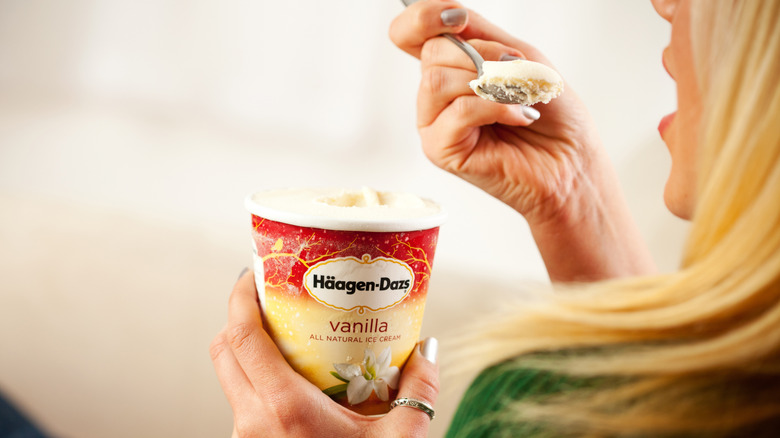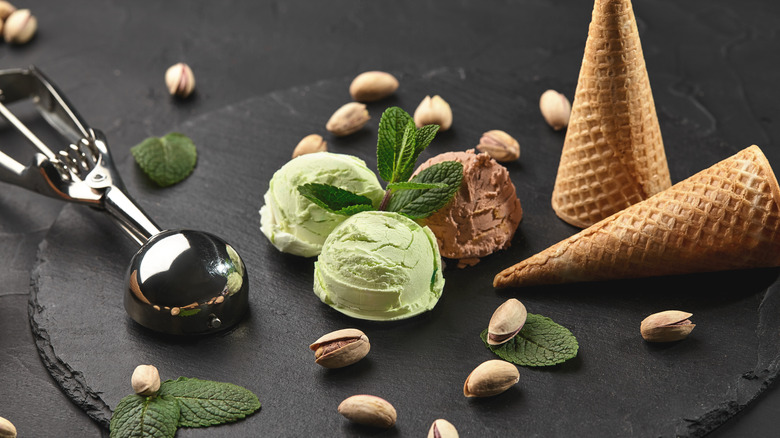Häagen-Dazs Isn't European, It's A Marketing Tactic
When Reuben and Rose Mattus decided to join the ice cream business in 1959, they knew that getting the company's name right was crucial to success. Both Jewish of Polish descent, the Mattuses took their ice cream title inspiration from Denmark, a country they admired for saving Jews during World War II. They settled on the name Häagen-Dazs, words that happen to be complete and utter gibberish. That's right, the name is total mambo jumbo with no translation in any language.
The Mattuses never claimed their Häagen-Dazs ice cream was made in Europe or that the recipe was European; People made the assumption on their own thanks to its very un-American sounding name. The Mattuses were counting on this because they knew how Americans responded to European wares. It didn't matter in the least if Häagen-Dazs didn't mean anything, the name was chosen as a brilliant marketing ploy. And it worked.
What's in a name?
Whether it's French perfume, Italian leather, or German automobiles, Americans tend to believe that European goods are equated with sophistication, fine craftsmanship, exclusivity, and chicness. The Mattuses understood this concept and intentionally chose a European-sounding title that would evoke the romanticism and artistry of Europe. Even the use of the umlaut (those two tiny dots over the first "a") was purposefully chosen; Reuben believed it would grab consumers' attention. Hilariously, umlauts aren't even used in the Danish language. But as far as Americans were concerned, Häagen-Dazs was the epitome of sophisticated, superior ice cream and they literally ate it up.
The brand even made an appearance in the 1987 film "Wall Street" in a scene when the main character, Bud, is shown finally living the luxurious life he always wanted, complete with the perfect apartment, gorgeous girlfriend, automatic pasta maker (hello, 1980s), and a freezer full of Häagen-Dazs ice cream.
Today, with more ice cream brands available than ever before, Häagen-Dazs remains a notable brand, with many consumers still believing it's European and willing to spend a little more money on it. Business marketing tactics today are completely different than they were in 1959 but Häagen-Dazs' story proves the power in something as simple as an intentionally-chosen name and a knowledge of what people respond to.

